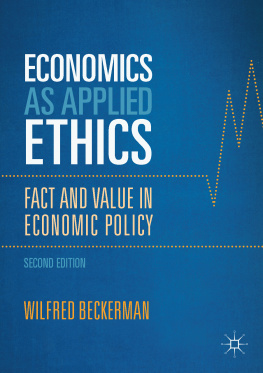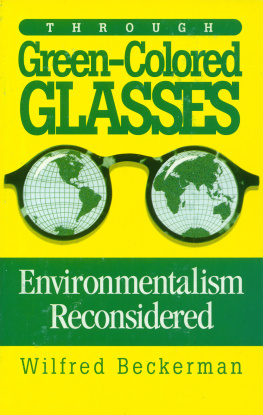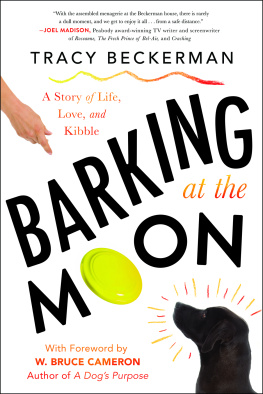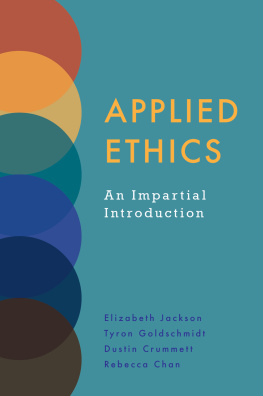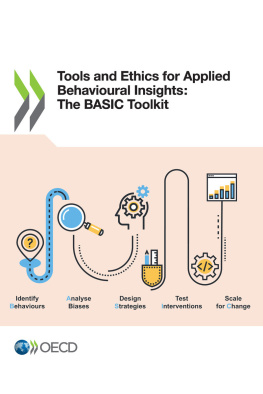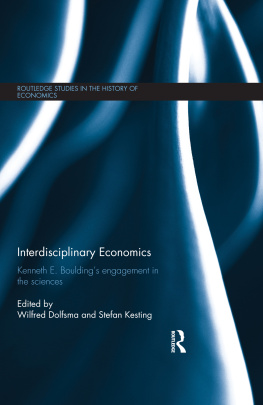1. Introduction
This book is not about ethics in economics, which can cover a vast range of topics, such as business ethics or the morally questionable behaviour of many of the actors in the world of business, or some important ethical aspects of economic theory. There are several excellent books that deal with such issues.
This book is very different. It is designed to do two things. First, it is designed to provide a simple method for breaking down the analysis of economic policy issues into what are matters of fact and what are matters of values. Second, for this purpose it highlights the main value judgements mostly of an ethical nature that tend to be ignored in the analysis of what policies contribute to societys economic welfare. Of course, the fact/value distinction is not as sharp as might be supposed. Even the facts are not totally objective. Many of the people involved in collecting and presenting the facts have their own agendas or biases. Furthermore, there is no value-free method of measuring most economic variables, such as the degree of income inequality or the level of unemployment or national income.
But for present purposes the fact/value distinction is useful and important. It should help people who hold conflicting views on economic policy issues and any other issues for that matter to identify how far their differences reflect different assumptions about the relevant facts and how far they reflect differences in values. Thus it should enable reasonable people to arrive at a peaceful agreement about what if anything they still differ about.
Economics is an applied science, like medicine or engineering. Few people would want to study medicine if there were no intention of improving peoples health. In the same way the study of economics would be far less attractive if it were not to be used to tackle the economic ailments of society. As Pigou, the father of welfare economics, put it, If it were not for the hope that a scientific study of mens social actions may lead, not necessarily directly or immediately, but at some time and in some way, to practical results in social improvement, not a few students of these actions would regard the time devoted to their study as time misspent.
In order to understand how our bodies work, medicine has to call on many other disciplines, such as anatomy, physiology, biochemistry, pharmacology, psychology and so on. Similarly in order to find out how economies work, economics has to take account of many special disciplines, such as statistics, history, politics, sociology and psychology. But in order to judge how it ought to work it also has to take account of ethics. Indeed, it would be difficult to think of any important current economic policy question that did not raise questions about societys ethical values. These range from issues such as the concern with increasing economic inequality in society to relatively technical questions such as how much ought to be spent on improving transport facilities.
The first two chapters will explain the key to the method I believe is essential in the analysis of most problems of social policy. This method consists of making a clear distinction between questions of fact and questions of value. In spite of contributions to economics made by pioneers such as Bergson, Samuelson, Little and Graaff, the role of value judgements in economics is not always adequately recognised. Perhaps this is why economics has been described as the dismal science. Following the first two chapters in which the basic concepts used are explained there are a few chapters that discuss the role of value judgements in the general theory of welfare economics. This will include some discussion of what is meant by the welfare of individuals and of society as a whole. These will be followed by chapters in which some of the applications of the method to certain specific contemporary problems are examined in more detail, such as how we define the boundaries of the society in whose welfare we are interested, and what concept of equality we should be concerned with.
I assume that most readers of this book have some knowledge of elementary economic theory, or are prepared to acquire some in the course of reading it, if only by accident. For the analogy between medicine and economics goes further. Outside primitive societies one would not take much notice of a medical practitioner who did not have a basic medical training. Similarly, one ought not to attach too much importance to the economic pronouncements of pundits who have no basic economic knowledge, especially if they are politicians or businessmen who have their own axes to grind. Let me give one example.
Not long after I arrived as a Fellow of Balliol College, Oxford, in 1964, I was invited to attend some special College dinner at which most of the other guests were successful businessmen. (Any reader of this book can guess why.) At various points during the evening I was introduced to several of them as the new economist on the block. Every one of them quickly proceeded to explain to me what was wrong with the British economy at that time. What was interesting was that many of their diagnoses were totally contradictory. For example, one said that the trouble with the British economy was that it was too difficult to make a profit. And another said that the trouble with the British economy was that it was too easy to make a profit. Not one of them mentioned the real reason, namely that Britain was stuck with a fixed and uncompetitive exchange rate.
Today most men of affairs may be a little less confident about the way to solve the grave economic problems facing most developed countries. But this book is not directly addressed to those problems, although it is hoped that the method of analysis set out in this book will contribute to sensible discussion of them.
2. Preview
Value Judgements in Welfare Economics
Throughout this book emphasis is placed on the importance in economic policy analysis of the distinction between positive propositions, which rely on facts, and value judgements, which do not. Between them they provide the basis for normative propositions, which are propositions about what one ought to do, or what society ought to do. For example, the normative proposition that society ought to impose heavy taxes on tobacco could be defended on the basis of (i) a positive proposition that smoking is bad for peoples health and (ii) another positive proposition that better health makes people happier and, finally, (iii) the value judgement that being happy is intrinsically valuable, so that it needs no further justification (though it can still be disputed).
In this book I try to show how essential are these distinctions in welfare economics, which is about how a societys economy ought to work. The next chapter of the book explains how these concepts are used. Later chapters show how ubiquitous are value judgements in the analysis of economic policy problems. This might come as a surprise to most people, including even some economists. For it is probably widely believed that economics is all about facts and statistics.
Alas, if that were only the case! But it isnt. So here I shall summarise some of the most important of the value judgements that I shall highlight in the book.

